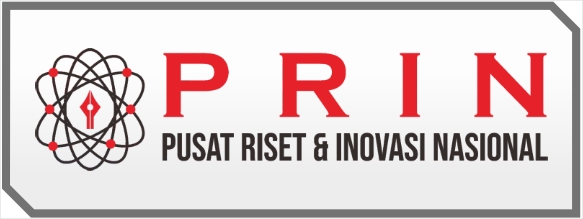Transformational Leadership In Organizational Change
DOI:
https://doi.org/10.55606/ijemr.v2i2.110Keywords:
leadership, transformational, organizationAbstract
Leadership plays a very important role in organizational dynamics and change. This article discusses the concept, role, and emphasis on transformational leadership in the context of organizational change. Transformational leadership is an approach that allows leaders to influence and bring about positive change in an organization. This concept brings about more than just procedural changes; it creates an inspiring vision, motivates subordinates, and encourages innovation in order to achieve higher organizational goals. In this research, we explain how transformational leadership plays a central role in managing organizational change. We discuss how transformational leaders are able to create organizational cultures that support change, identify barriers, and managing resistance with a collaborative approach. We also highlight strategies used by transformational leaders to motivate team members, encourage active participation, and achieve success in the face of complex change. This study provides deeper insight into how transformational leadership can be the key to success in facing the challenges of organizational change. We explore the positive impact of transformational leadership on organizational culture, team performance, innovation and achievement of organizational goals. The findings of this research provide practical implications for leaders and managers in managing organizational change effectively. Transformational leadership is a relevant and important concept in the context of organizational change.
References
Abdurrahman, A., Khaeriyah, K., Suyuthi, NF, Natsir, N., Yappi Makassar, S., & Fajar, U. (nd). A Growth-Learning Perspective Measurement of PT. Eastern Pearl Flour Mills Staff Performance (Vol. 02).
Amirullah, AN, & Natsir, N. (2022). INFLUENCE OF ORGANIZATIONAL CULTURE ON EFFECTIVENESS PERFORMANCE OF EMPLOYEES AT THE GRADUATE OF HASANUDDIN UNIVERSITY. Journal Of Business, Finance, and Economics (JBFE), 3(2).
Castellano, S. (2021). Impact of self-leadership and shared leadership on the performance of virtual r&d teams. Journal of Business Research, 128, 578–586. https://doi.org/10.1016/j.jbusres.2020.12.030
Faulks, B. (2021). Impact of empowering leadership, innovative work, and organizational learning readiness on sustainable economic performance: an empirical study of companies in Russia during the COVID-19 pandemic. Sustainability (Switzerland), 13(22). https://doi.org/10.3390/su132212465
Fürstenberg, N. (2021). How and when paradoxical leadership benefits work engagement: The role of goal clarity and work autonomy. Journal of Occupational and Organizational Psychology, 94(3), 672–705. https://doi.org/10.1111/joop.12344
Haque, AU (2021). The role of ethical leadership in managing occupational stress to promote innovative work behavior: A cross-cultural management perspective. Sustainability (Switzerland), 13(17). https://doi.org/10.3390/su13179608
Iqbal, Q. (2022). Sustainable leadership in higher education institutions: social innovation as a mechanism. International Journal of Sustainability in Higher Education, 23(8), 1–20. https://doi.org/10.1108/IJSHE-04-2021-0162
Kim, M. (2021). The power of empowering leadership: allowing and encouraging followers to take charge of their own jobs. International Journal of Human Resource Management, 32(9), 1865–1898. https://doi.org/10.1080/09585192.2019.1657166
Latif, K. F. (2021). Direct and configurational paths of knowledge-oriented leadership, entrepreneurial orientation, and knowledge management processes to project success. Journal of Intellectual Capital, 22(1), 149–170. https://doi.org/10.1108/JIC-09-2019-0228
Sahibzada, UF (2021). Knowledge-oriented leadership towards organizational performance: symmetrical and asymmetrical approach. Business Process Management Journal, 27(6), 1720–1746. https://doi.org/10.1108/BPMJ-03-2021-0125
Schuma, G. (2022). The transformative leadership compass: six competencies for digital transformation entrepreneurship. International Journal of Entrepreneurial Behavior and Research, 28(5), 1273–1291. https://doi.org/10.1108/IJEBR-01-2021-0087
Shanafelt, TD (2021). Assessment of the Association of Leadership Behaviors of Supervising Physicians With Personal-Organizational Values Alignment Among Staff Physicians. JAMA Network Open, 4(2). https://doi.org/10.1001/jamanetworkopen.2020.35622
Yang, Y. (2019). Analysis on key factors of students' motivation to participate in sports ecology. Ecology, 28(107), 3201–3206.
Downloads
Published
How to Cite
Issue
Section
License
Copyright (c) 2023 Abdul Sahid, Indriati Amirullah, Khaeriyah Khaeriyah, Nurasia Natsir, Syafaruddin Syafaruddin

This work is licensed under a Creative Commons Attribution-ShareAlike 4.0 International License.














